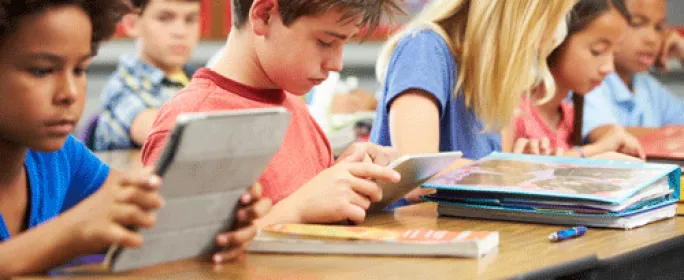According to technology experts and academics, computer tablets can revolutionise education and help engage disaffected students.
Research published last year found that devices such as iPads could help students become more creative and independent learners.
But teachers have warned that the mobile devices can do more harm than good. Next week’s annual conference of the Association of Teachers and Lecturers union (ATL) will hear that tablet “addiction” can actually lead to “poor performance” in the classroom, which can result in learners “losing educational opportunities” as a result.
A motion put forward by Northern Irish teacher Mark Montgomery argues that symptoms of tablet addiction include “withdrawal”, “loss of interest in or ‘crowding out’ other activities”, “lack of control”, “irritability” and even “deception and furtiveness”.
He will call on the union to draw evidence on problems posed by tablets to create a factsheet for education staff.
ATL general secretary Mary Bousted, called on parents to monitor their youngsters’ use of the gadgets, amid fears that children are staying up late into the night playing on them.
While acknowledging that tablets can be “extremely empowering” Dr Bousted said: “There’s no doubt that they are being used more in schools but there are concerns that increased time spent on the screen, on your tablet, leads to far more sedentary and far more isolated children and young people.
“I don’t think anybody in the debate is going to say ‘let’s go back to the 20th century’, it’s about how they are managed and how they are used and particularly about how they are used in schools.
“And perhaps there will be a debate also about the ways in which parents should monitor the use of tablets and computers at home.”
Dr Bousted also warned that the size of the devices meant many students were able to use them without their parents’ knowledge.
“It’s just like having a television in the bedroom, only its easier with a tablet, it’s smaller. I have talked with parents about how difficult it is to manage. Because they are smaller you say ‘turn your tablet off now and go to bed’ and two hours later you go up and they’re under the duvet still playing the computer game… My view is that if the child can’t be trusted to turn it off when asked then take it off them.”
Last year, students in Los Angeles were issued with iPads in a $500 million deal with Apple. But school officials ended up red-faced when hundreds of learners hacked the tablets, enabling them to access restricted websites and download games.





